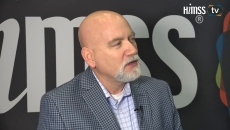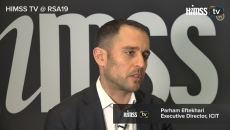cybersecurity
Akamai's Patrick Sullivan and Tony Lauro say healthcare is a fertile target for cybersecurity attacks, making zero trust networks appealing as a simplified solution to protect data.
Lee Kim, HIMSS director of privacy and security, is excited about more hospitals raising their baseline security posture.
Program Executive Officer Stacy Cummings says the DoD is deploying a network built with cybersecurity in mind, using a risk management framework and undergoing regular white hat assessments.
IronNet Cybersecurity CTO Michael Ehrlich warns of those efforts trying to change our way of life, such as China with IP theft, Russia spreading discontent, and Iran and North Korea having weapons capabilities.
The FDA comes out with pre- and post-market cyber guidelines for medical devices to eliminate confusion around security, says MITRE Senior Principal Cybersecurity Engineer Margie Zuk.
Cynerio is keeping medical devices and hospital networks safe from cyberattacks, CEO Leon Lerman explains at MEDinIsrael in Tel Aviv.
Parham Eftekhari, executive director of the Institute for Critical Infrastructure Technology, says hospitals have to demand more secure products so manufacturers wake up to realize prospective clients are buying based on security.
Nathan Wenzler, senior director of cybersecurity at Moss Adams, says the idea that AI needs no management simply isn’t true; instead, smart people are needed to make decisions about the data and findings.
Researchers noted transmissions of specific sensitive data, such as a user’s drug list, that could de-identify the user and be repurposed for commercial uses.
Maggie Brunner, program director of Cybersecurity, Emergency Communications & Technology with the National Governors Association, says healthcare CIOs can learn from state security strategies.








